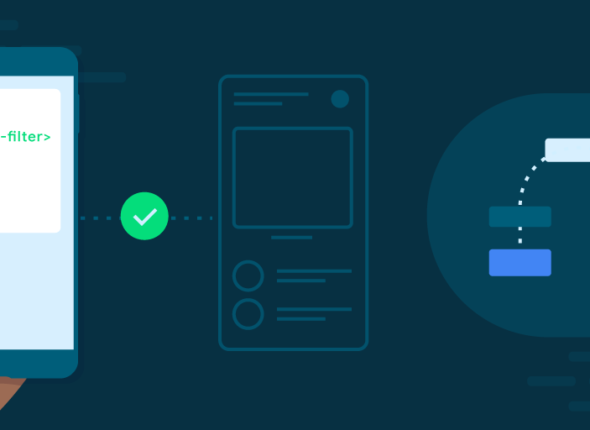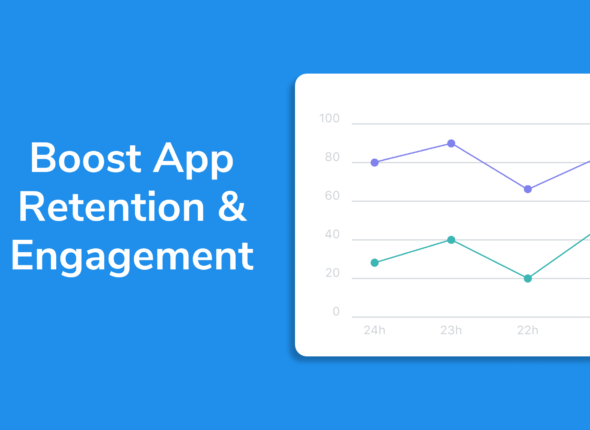Cloud services have revolutionized the way modern mobile apps are developed, deployed, and maintained. Integrating cloud services into your mobile app enables seamless data storage, powerful computing resources, real-time communication, and a scalable infrastructure that grows with your user base. Whether you’re developing a small app for personal use or a large-scale enterprise solution, cloud services can enhance performance, improve scalability, and simplify backend management.
In this detailed blog, we’ll explore the benefits, popular cloud services, and best practices for integrating cloud technology into mobile applications.
What Are Cloud Services in Mobile Apps?
Cloud services in mobile apps refer to the use of cloud-based resources, such as storage, computing, databases, and APIs, to handle various functionalities of the app. Instead of storing data locally on the user’s device or managing everything with an on-premise server, the app communicates with remote servers hosted on the cloud. This approach allows apps to scale efficiently, access powerful processing resources, and provide users with real-time data.
Benefits of Integrating Cloud Services into Mobile Apps

Integrating cloud services into your mobile app provides several benefits that improve both the user experience and app performance. Here are some of the key advantages:
1. Scalability
One of the biggest benefits of using cloud services is scalability. Cloud infrastructure can easily scale up or down based on user demand. Whether you have 100 users or a million, cloud providers like AWS, Google Cloud, and Microsoft Azure can automatically allocate more resources to ensure smooth performance.
2. Reduced Development Costs
By using cloud services, developers can avoid the costs of maintaining physical servers or expensive data centers. Cloud services operate on a pay-as-you-go model, meaning you only pay for the resources you use, which is much more cost-effective.
3. Improved Performance
Cloud services allow you to offload data storage, computation, and other heavy processes to powerful remote servers. This means apps can perform complex tasks without taxing the user’s device, leading to better performance, even on low-end hardware.
4. Real-Time Data Synchronization
Cloud services enable real-time data synchronization, ensuring that data across devices, platforms, or users stays up-to-date. This is particularly beneficial for apps that require collaboration, such as document-sharing apps, messaging platforms, or social networks.
5. Security and Data Backups
Cloud providers offer robust security features like encryption, firewalls, and regular backups, ensuring that data is safe and recoverable in case of breaches or failures. This helps apps comply with regulations like GDPR or HIPAA while safeguarding user data.
6. Cross-Platform Consistency
Cloud services facilitate seamless data sharing across multiple devices and platforms (Android, iOS, web), ensuring a unified user experience. Whether the user switches between a mobile phone and a tablet, the data and functionality will remain consistent.
Popular Cloud Services for Mobile App Development
There are numerous cloud service providers offering different solutions tailored for mobile app development. Here are some of the top services and tools used by developers:
1. AWS (Amazon Web Services)
AWS offers a wide array of cloud computing services that mobile apps can leverage, such as data storage (Amazon S3), computing power (EC2), and databases (DynamoDB). AWS provides SDKs for both Android and iOS, making it easier to integrate cloud functionalities into your app.
- Amazon S3: Scalable object storage for data, images, videos, and backups.
- Amazon EC2: Cloud-based virtual machines to handle complex computing tasks.
- Amazon RDS/DynamoDB: Databases that offer managed SQL or NoSQL services.
- Amazon Lambda: Event-driven compute service for running code in response to events.
2. Google Cloud
Google Cloud Platform (GCP) is another major cloud provider, offering services like Firebase, App Engine, and Cloud Functions. It provides tools for both development and app management with high availability and global reach.
- Firebase: A popular Backend-as-a-Service (BaaS) offering features like real-time databases, cloud storage, and user authentication.
- Google Cloud Functions: Event-driven functions that allow apps to run specific tasks based on triggers.
- BigQuery: A scalable data warehouse for handling large datasets and analytics.
3. Microsoft Azure
Microsoft Azure offers a comprehensive cloud computing platform for mobile app development, including services for data storage, virtual machines, and AI. Azure’s mobile SDKs support easy integration into Android and iOS apps.
- Azure App Service: Helps in building and hosting web apps and mobile backends.
- Azure Cosmos DB: A fully managed NoSQL database for fast and scalable storage.
- Azure Functions: Event-driven compute services for running tasks in response to app events.
4. IBM Cloud
IBM Cloud offers a flexible platform with AI-powered services and mobile backend support. It is ideal for enterprises looking to integrate cognitive services into their mobile applications.
- IBM Watson: Provides AI and machine learning capabilities, such as image recognition, natural language processing, and chatbots.
- Cloud Foundry: A platform for deploying, running, and scaling mobile apps.


Best Practices for Integrating Cloud Services
Successfully integrating cloud services into your mobile app requires careful planning and execution. Here are some best practices to ensure smooth integration:
1. Design for Offline Functionality
Not all users have reliable internet connections, so it’s important to design your app with offline functionality in mind. Implementing local caching ensures users can still access essential features when offline. Once the connection is restored, the app can sync with the cloud to update data.
2. Use Secure APIs and Authentication
Security is paramount when integrating cloud services. Always use secure APIs for communication between your app and the cloud and ensure data encryption is in place for sensitive data. Implement OAuth, JWT tokens, or use the authentication services provided by the cloud provider.
3. Monitor Cloud Usage and Costs
While cloud services offer a pay-as-you-go model, usage can quickly spiral out of control if not monitored properly. Use tools like AWS CloudWatch or Google Cloud Monitoring to track resource usage, set alerts, and ensure you stay within your budget.
4. Implement Automated Backups and Recovery
Take advantage of the automated backup and disaster recovery services offered by cloud providers. This ensures that in case of a data breach, server failure, or accidental deletion, your app’s data remains intact and recoverable.
5. Optimize for Performance
Even though cloud services provide scalability, optimizing your app for performance is still crucial. Reduce unnecessary API calls, use lazy loading for content, and cache data locally to minimize reliance on cloud requests.
Conclusion
Integrating cloud services into your mobile app is essential for building scalable, secure, and efficient applications. By leveraging cloud storage, databases, authentication, and AI capabilities, you can improve performance, reduce development costs, and offer a better user experience. As the demand for mobile apps grows, utilizing cloud technology ensures your app is future-proof, scalable, and capable of handling the complexities of modern app development.
Cloud integration is no longer an option but a necessity for mobile apps in 2024 and beyond. By following best practices and leveraging the right cloud tools, you can ensure your app’s success while providing a seamless and secure experience for your users.
Tips for Reducing App Load Time and Memory Usage
- October 17, 2024
- Com 0
In today’s fast-paced digital world, users expect mobile apps to perform flawlessly, load quickly, and run efficiently. An app that…
Strategies to Reduce App Abandonment and Increase Retention
- October 17, 2024
- Com 0
In the highly competitive app marketplace, user retention is one of the most important metrics for measuring success. While acquiring…
Fintech App Development: Ensuring Compliance and Security
- October 16, 2024
- Com 0
The rapid growth of fintech (financial technology) apps has revolutionized the financial services industry. From mobile banking and digital wallets…
The Future of Mobile Apps in the Travel and Tourism Industry
- October 15, 2024
- Com 0
The travel and tourism industry has undergone a significant transformation in recent years, driven largely by advancements in technology. Mobile…
What Every Developer Should Know About Securing API Endpoints
- October 13, 2024
- Com 0
APIs (Application Programming Interfaces) play a critical role in modern application development, enabling communication between client applications and backend services.…
Integrating Cloud Services into Your Mobile App
- October 12, 2024
- Com 0
Cloud services have revolutionized the way modern mobile apps are developed, deployed, and maintained. Integrating cloud services into your mobile…






